Our approach to raising Nigerian dwarf goats and Nubian goats is rooted in our commitment to sustainable farming and animal welfare. We strived to create a nurturing environment where our goats can thrive. We intentionally kept our goat herd small. This ensured that our natural grazing areas never were over-exhausted.
No confinement and lots of room to play
Our goats had the privilege of approximately 2-3 acres of carefully fenced pasture at any given time. At TnF Farms, we rotated our animals through pastures so there was always something great to eat and the vegetation got an opportunity to grow back. These areas included a mix of open fields, shaded forests, and the serenity of a creek bottom where they could roam freely. This diverse environment offered them ample space to run, explore, and engage in their natural behaviors.
Since they are active and curious by nature, we aquired old playground equipment for them to climb and jump on. Our young goats loved the adventurous playgrounds. We kept shelters thoughtfully placed throughout our rotations. This gave all of our livestock comfortable retreats to seek relief from surprise rain and to get a break from the sun.
Making sure everyone is happy and healthy
We prioritize the health of all our livestock through regular veterinary maintenance. Ensuring that they receive the necessary care to thrive. Our commitment to ethical and sustainable farming practices extends to our animal healthcare. Absolutely no hormones ever and antibiotics only when necessary.
To keep our goats comfortable, we misted them with essential oils. This helped deter insects and provided them with a more enjoyable living experience while avoiding the use of harsh chemical repellents.
Nigerian Dwarfs are affectionate Nubian goats are sweethearts
Perhaps one of the most endearing aspects of our goats is their regular interaction with people. They are not only curious but also affectionate. Often displaying a genuine fondness for human company. Many of our Nigerians enjoy sitting in laps. While the Nubians love following us around and engaging in gentle interactions. This further underscores their friendly and sociable nature.
At TnF Farms, we took immense pride in providing our goats with an environment where they could lead healthy, contented lives. Our approach to farming reflects our dedication to sustainability, animal welfare, and fostering a strong bond between humans and our beloved livestock.
- Pasture and forest vegetation including vines, leaves, tree nuts and fruit
- Hay
- Alfalfa
- Fruit and vegetables year round, pumpkin and squash in the fall
- Supplemental mixture of commercial goat feeds
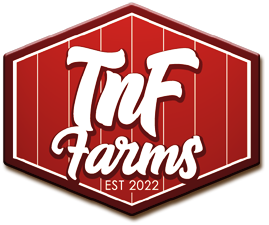
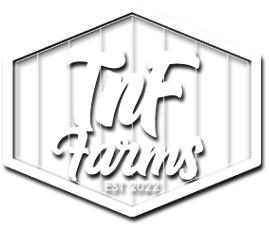
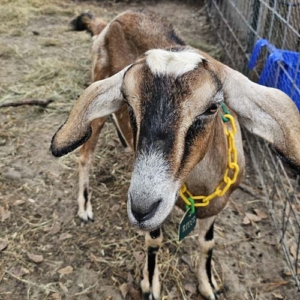
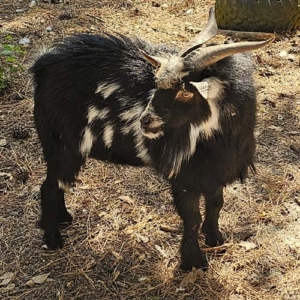
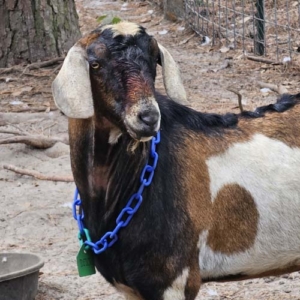
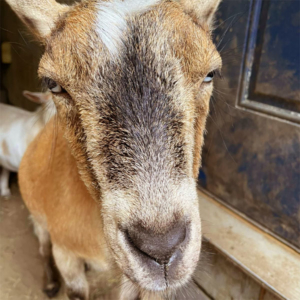
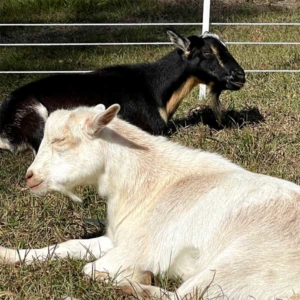

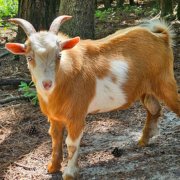
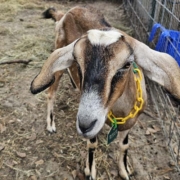
Florida’s Raw Milk Laws
/in Farm Animals, Florida Living, Homesteading, Nigerian Dwarf Goats, Nubian Goats/by TimFlorida, known for its stunning beaches and year-round sunshine, is also home to a complex set of regulations governing the sale and consumption of raw milk. Raw milk enthusiasts and producers in the state must navigate a legal landscape that balances the desire for access to unprocessed dairy with concerns about public health and safety. In this blog post, we’ll delve into Florida’s raw milk laws, exploring the regulations, benefits, and challenges associated with raw milk in the Sunshine State.
Foraging for Goats
/in Farm Animals, Homesteading, Nigerian Dwarf Goats, Nubian Goats/by KaitlynIn the world of goat keeping, the concept of foraging is gaining increasing recognition as a fundamental element in promoting the health and happiness of our beloved goats. While traditional feeding methods certainly play a role, integrating foraging into your goats’ routine can have a multitude of benefits. Let’s explore why foraging is essential for goats and how it contributes to their overall well-being and health.
Registered Livestock Pros and Cons
/in American Guinea Hogs, Farm Animals, Farmer's Market, Homesteading, Nigerian Dwarf Goats/by TimWhen it comes to raising livestock, whether for meat, milk, or other products, farmers often face a choice between registered and non-registered animals. Registered livestock, which are typically associated with purebred or pedigree breeds, come with their own set of advantages and disadvantages. In this blog post, we’ll explore the pros and cons of raising registered livestock to help farmers make informed decisions about their animal husbandry practices. TnF Farms has both registered and unregistered livestock. The animal’s purpose is dependent on whether or not it is registered. TnF Farms is also a member of the American Guinea Hog Association.